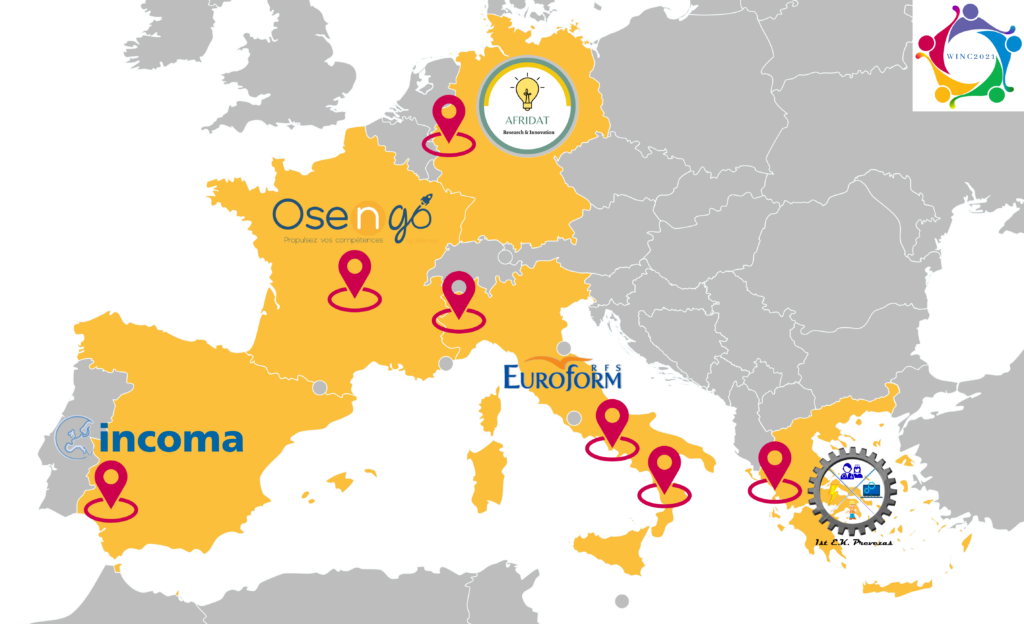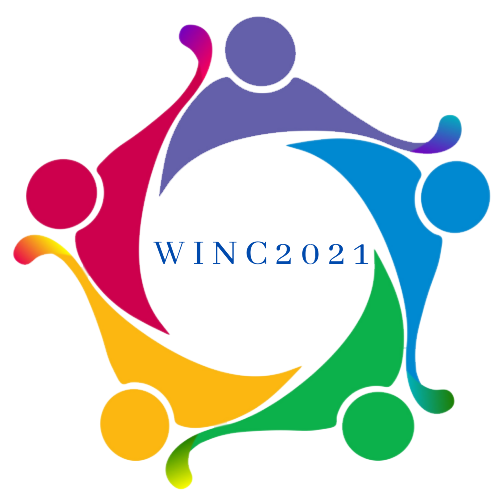WORK INCLUSION 2021
Innovative Validation Acquired Experience Methodology for Immigrants.
- Programme: Erasmus+
- Action Type: KA220-ADU – Cooperation partnership in adult education
- Project start date: 01/02/2022
- Project End Date: 31/12/2024
About Winc2021
Our project aims at meeting the needs of certification operators (validators), or future validators, working in adult education institutions to learn new methods in order to be able to certify migrants’ experiences, qualifications and skills and, consequently, to allow the latter a better socio-occupational integration. In this regard, the creation of a new instrument based on the national experiences of Validation of Acquired Experience (VAE) and supported by technological tools capable of overcoming geographical and spatial constraints appears to be an optimal solution capable of mitigating the current absence of uniformity in the certification of qualifications and skills in the European Union.
More particularly, migrants who arrive in European countries often struggle to integrated into the social and occupational system of their country of arrival because they are confronted with a lack of univocal and adequate tools to meet their expectations. Most of the time, they enter the labour market in sectors that are different from the ones in which they worked in their country of origin because they are unable to demonstrate that they have previously acquired certain specific skills.
It is therefore necessary to create new and effective tools for the socio-occupational inclusion of migrants starting from the analysis of the current validation experiences in the countries where the migratory phenomenon has become prominent, with the aim of creating a shared validation tool that can be used by the operators working in adult training institutions.
The newly conceived VAE methodology will allow a first recognition of qualifications, experiences and skills with a consequent improvement of the working conditions of validators and of migrants, allowing them to aspire to better personal and professional conditions, minimizing the possibility of remaining on the margins of the social life of the country of arrival.
Countries involved

